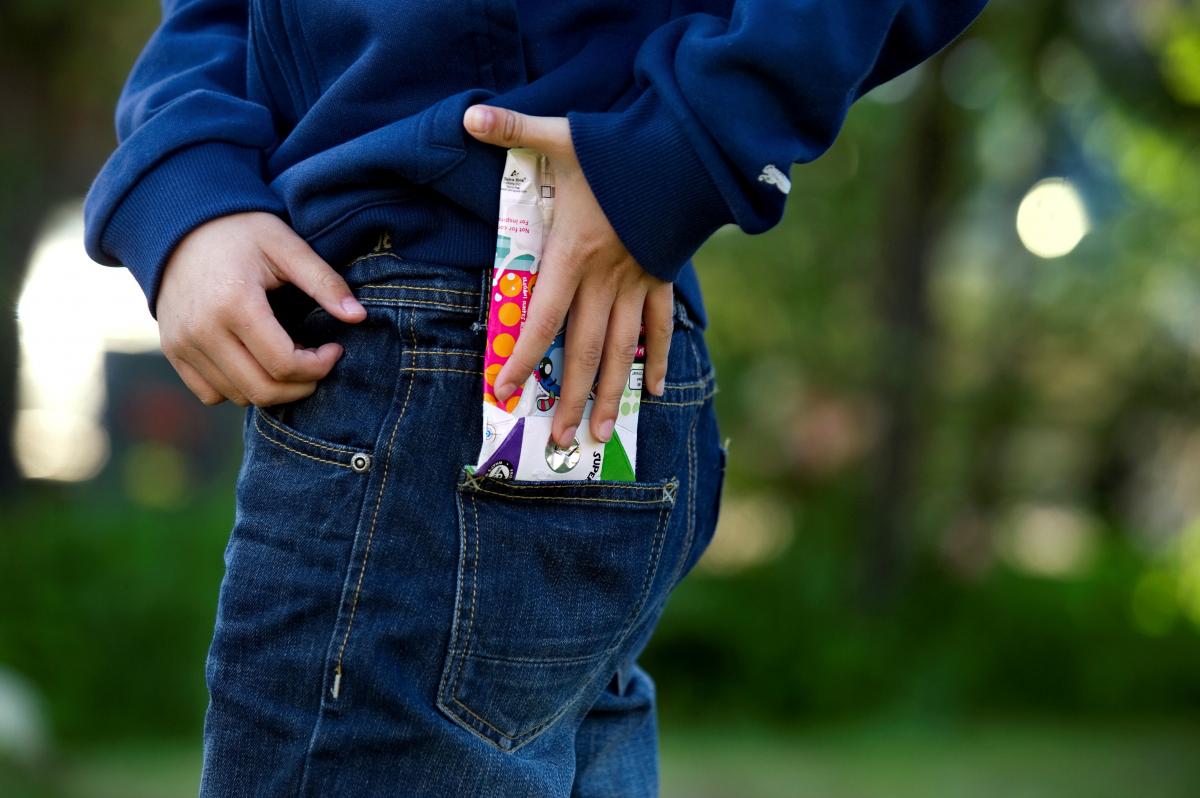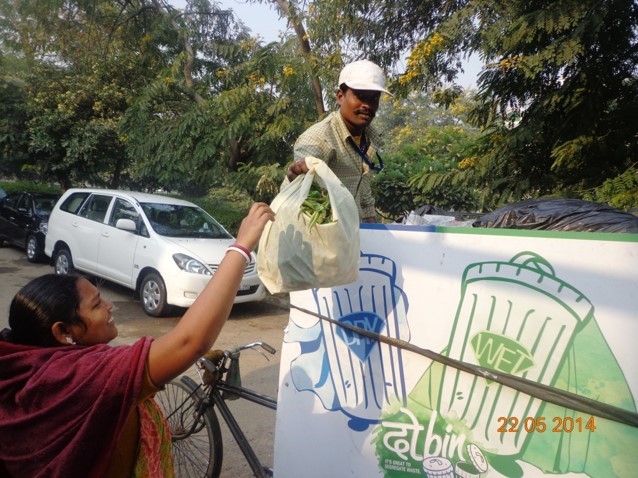THREE trends currently impact the way Asia’s food and beverage sector handle recycling: legislation, infrastructure, and awareness, says Jeff Fielkow, Cluster Leader Environment for South Asia, East Asia & Oceania at Tetra Pak.
“Firstly, recycling legislation varies throughout the region, especially when it comes to the recycling of packaging materials, including used beverage cartons (UBC). On our part, we are working to improve awareness of UBC recycling with government stakeholders.”
“Secondly, throughout the region, the infrastructure of municipal collection and sorting of recyclable materials is limited. In most cases, the available capacity to recycle UBC is more advanced than the collection systems. However, progress is being made to increase the recycling collection infrastructure and when this occurs, UBC recycling rates will increase because we already have UBC recyclers established.
Finally, recycling awareness among consumers is low but on the rise. An exception to this trend are Japan and Korea, where recycling awareness is high.”

Jeff Fielkow, Cluster Leader Environment for South Asia, East Asia & Oceania, Tetra Pak
Recycling requires partnership, Mr Fielkow stresses, because it is obviously a shared responsibility among all stakeholders. To make the process work, he says there should be a waste collection and sorting system in place. Legislation has to support the process. Companies need to develop easily recyclable products, while recycling technologies must zero in on turning waste into useful products. Finally, consumers need to be mobilized to sort and collect waste.
“Recycling trends may differ across global markets and that each market has a different level of maturity, hence a different requirement.”
A crucial strategic initiative
As a packaging company, recycling is an essential part of Tetra Pak’s strategy.
“Tetra Pak does not own or operate recycling facilities, rather we collaborate with the existing recycling supply chains in most of our markets and as well throughout Asia to ensure there’s sufficient access to recycle our products,” says Mr Fielkow.
The company’s initiatives do not end with increasing consumer awareness and supporting collection and sorting infrastructure, but also boosting business opportunities for recycling entrepreneurs, and expanding market opportunities for recycled materials.
“We have a global recycling goal – to double the recycling rate of our post-consumer beverage cartons by 2020,” reveals Mr Fielkow. “To achieve this, we will need to triple the number of recycled cartons to approximately 100 billion a year, by the end of the decade.”
He further discloses that “over 160 companies in more than 45 markets – from small enterprises to multinational companies – currently recycle the base materials used in Tetra Pak cartons.”

Recycling awareness in Asia (with the exception of Japan and Korea) is low but on the rise
A global packaging trend
The 2015 report “Global Packaging Landscape: Growth, Trends & Innovations”1 released by Euromonitor International in partnership with the Packaging Machinery Manufacturers Institute (PMMI), noted the strong influence of recycling, and environmental issues were among top three trends affecting global packaging. The others were greater consumer awareness of health and wellness, and increasing disposable income and purchasing power.
The survey also mentioned conservation activities by packaging and product manufacturers are key marketing element on the physical packaging.
Returnable packaging will also see critical developments moving forward, according to the survey.
In 2014, folding cartons accounted for about 9% volume share among the top 10 pack types in the world.
Catalyst for recycling in Asia
Tetra Pak has set the wheels in motion in parts of Asia through different projects and programs on recycling. According to Mr Fielkow, Tetra Pak collaborates with different stakeholders such as industry associations, recyclers, and local communities in creating low cost recycling technologies, setting up waste sorting and collection, and conducting consumer education.
“While we don’t own or operate any recycling services ourselves, we act as a catalyst to encourage recycling. We work with partners and stakeholders in countries around the world, adapting our approach to reflect local conditions,” he says.
Within the region, Tetra Pak has initiated several recycling programs that have yielded outstanding results.
In Malaysia, the company works together with customer Fraser & Neave Holdings Bhd, the Sha Alam City Council and a local business in conducting an annual recycling competition for schoolchildren from kindergarten to secondary school. Now on its 11th year, the program has collected over one million kilos of packaging waste.
“The project combines educating children about the environment with promoting family-wide recycling,” says Mr Fielkow. “As a result, all schools in Shah Alam now have collection facilities on site, improving local recycling rates and ensuring that environmental awareness comes naturally for the next generation of consumers.”
In Thailand, Tetra Pak runs the Green Roof Project where consumers are encouraged to deposit folded and flattened used beverage cartons for recycling. In March 2016, some 6,000 roofing sheets produced from about 12 million recycled cartons were donated to the Thai Red Cross to benefit underprivileged Thais and those affected by natural calamities.
While in India, the Confederation of Indian Industry during its second Inclusive Development and Sustainability conference cited as best practice the company’s case study about waste management and recycling entitled “Strengthening the Recycling Ecosystem for Tetra Pak Cartons”.
“Tetra Pak has been working with different stakeholders including recycling companies, NGOs, schools and government bodies to improve collection and recycling of used Tetra Pak cartons,” says Mr Fielkow.

Tetra Pak’s recycling efforts in India have been cited as best practice by the Confederation of Indian Industry
Adapting to local conditions
Since rules and regulations governing recycling and waste management vary around the world, there are significant differences in recycling rates for different categories of packaging waste.
“We aim to increase the collection and recycling of Tetra Pak packages in all our markets, which means adapting our approach to reflect local legislation, infrastructure and practices,” declares Mr Fielkow.
“In some countries, the main challenge is to develop a collection infrastructure that provides a sufficient supply of cartons to make recycling viable. We support the development of this infrastructure by working with local partners to influence legislation or to facilitate discussion between collectors and recyclers.”
Committed partners
Tetra Pak and its customers are fully aligned in growing their businesses together in a sustainable way.
“Our recycling efforts add value to their corporate brand and support their sustainable development goals,” he continues. “Many customers are as passionate about recycling as we are, and they are keen to join force with us,” says Mr Fielkow.
“For instance, our customer Nestlé has been a committed partner in our CAREton Project since 2012. With a goal to promote recycling in Malaysia, the project team works with community organizations to deliver consumer education programs and support them with products recycled from beverage cartons.
Through this project, collection network for used beverage cartons has been expanded to more than 20 commercial partners, with over 470 collection points nationwide.”
Food safe and available, everywhere
“Tetra Pak is leading the food packaging and processing solutions with a vision to making food safe and available, everywhere. Although recycling is not our business, it has been a crucial part of our strategy and the way we operate in the different countries,” he reiterates.
“Having said that, we want to emphasize that recycling is a shared responsibility among all stakeholders:
- the waste collection and sorting system needs to be in place;
- legislation needs to support;
- companies need to make products more easily recyclable;
- recycling technologies need to be developed to make waste into useful products;
- consumers need to be mobilized to sort and collect waste.
While our business is focused on protecting food, we are committed to working with all partners to increase recycling in every market we operate,” concludes Mr Fielkow.
Reference
1Global Packaging Landscape: Growth, Trends & Innovations www.pmmi.org/files/ResearchandTrends/Industry/Global-Packaging-Trends-ES.pdf
Air Jordan XI 11 Kid
 iConnectHub
iConnectHub
 Login/Register
Login/Register Supplier Login
Supplier Login


























